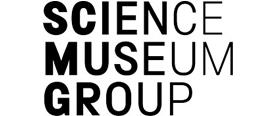Drugs KS4
These resources are intended to be used in order to teach the topic of Drugs at KS4. They fit in with the AQA Science (Biology) specification, but could be used with other specifications or as part of PHSCE.
It is anticipated the lessons would run as follows:
1. Different types of drugs, legal vs. illegal, recreational vs. medicinal. Students can use the internet to research different drugs, perhaps for a leaflet, poster or presentation, or just for their own notes.
2. Smoking. After discussing the effects of smoking on the body, students could read the article, "Why girls can't say no to cigarettes".
3. Alcohol. Students could use the Drink Driving article to summarise the effects of alcohol on the body and to prompt a discussion on the reasons why people drink and the socio-economic issues it can lead to.
4. Drug trials and the placebo effect. The article, Drug Formulation can be used along with the Drug Trials video to show how a new drug is developed and tested. The use of placebos can be illustrated by watching the Placebo effect video and/or carrying out the activities covered in The Placebo Effect.
Talk to Frank
This website contains information on various types of drugs, both legal and illegal, as well as advice. It is aimed mainly at young people. It can be used to allow pupils to research either a number of different drugs, or one or two specific ones for a presentation, leaflet or poster.
Home Office - Alcohol and Drugs
The Home Office web pages on alcohol and drugs contain information on the use of drugs with regards to the law. It could be used as part of a research task to find out about different classes of drugs and how drugs are controlled by the govenment.
Prescription drugs website
This website could be used to illustrate the wide range of legal drugs that exist for medicinal use. Students could research one or more drugs, perhaps as an addition to using the "Talk to Frank" website.
Why Girls Can't Say No to Cigarettes
This article by the Economic and Social Research Council could be used as a prompt to get students discussing reasons why young people might choose to take up smoking. Alternatively, students could first note down their own ideas about why people take up smoking before reading the article to compare their answers with the research. They might then produce a poster to pursuade young people either not to take up smoking, or to give up if they already smoke.
Drink Driving
This article from the September 2005 edition of "Catalyst" gives information about the effects of alcohol on the body and the legal issues surrounding drink driving through the use of a case study. It could be used to get students thinking about the implications of drinking, once the basics of alcohol use have been covered.
Drug Formulation
This is a Catalyst article from the September 2009 edition. Is details how medicines are developed and produced. Pupils could be given the article to read, then asked to produce a flow chart to describe the stages involved in drug production.
Drug Trials - the Punk Science Way
This video could be used as an introduction to, or summary of, a lesson on placebos and the placebo effect. It illustrates how a drug trial is carried out and why a placebo is an important part of a drug trial. Students could be asked to note down the stages involved in drug trials after watching the video.
The Placebo Effect
This activity, which could be used as a series of 1-3 lessons (dependent on how much time you have available to teach the topic), covers the use of placebos in drug trials. Students sign consent forms, then take part in a trial to test what effects caffeine has on the body. There is also a newspaper article discussing the placebo effect. At the end of the tasks, the class could discuss the placebo effect as well as the ethics of the trial itself.
Placebo effect video
This three minute video explains a little about the placebo effect and illustrates the points with statistics and information about trials previously conducted. It would be well used as a plenary activity to a lesson on placebos.




